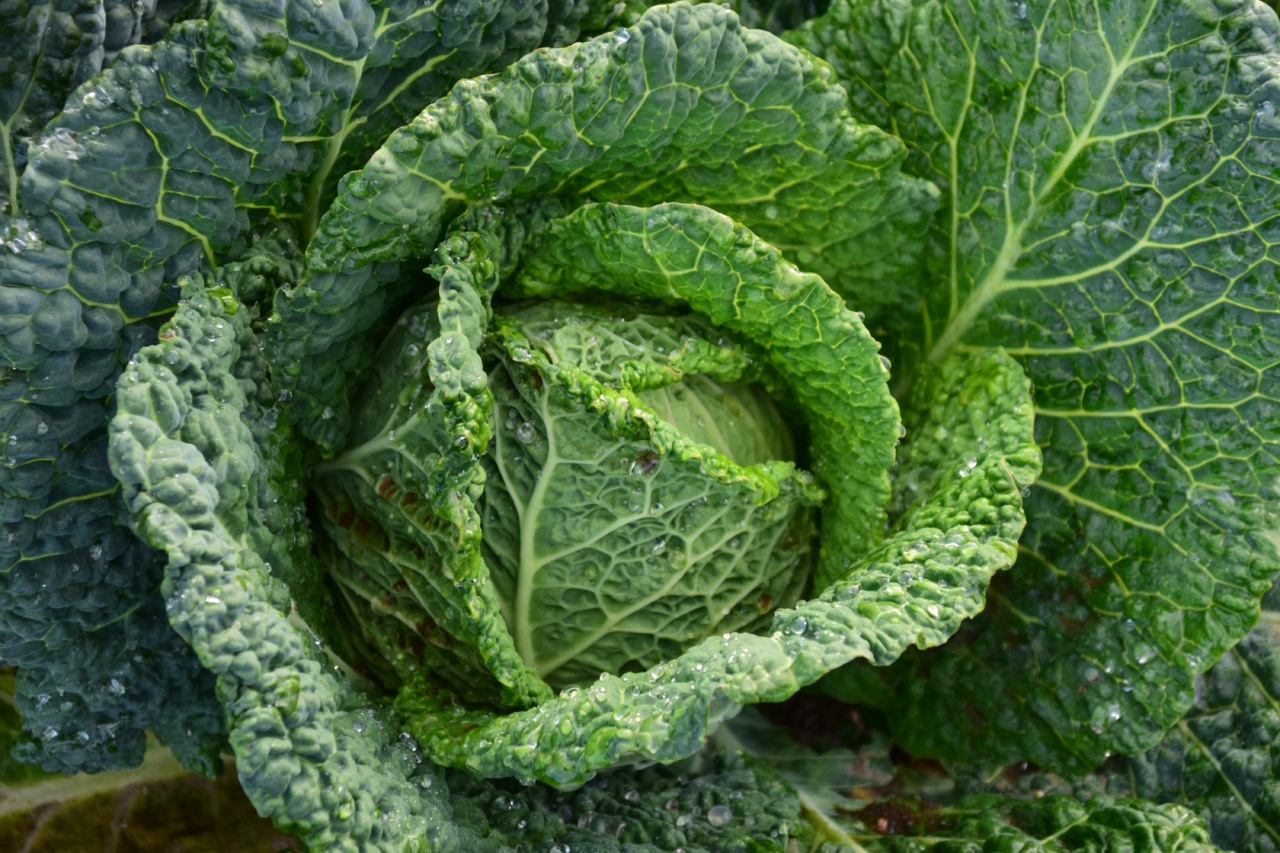Cabbage is a versatile vegetable that can be enjoyed in a variety of ways, whether raw in a salad, sautéed as a side dish, or fermented as sauerkraut.
It is a cruciferous vegetable that belongs to the Brassica family, along with broccoli, cauliflower, and kale. Cabbage is packed with essential vitamins, minerals, and dietary fiber, making it a nutritious addition to any diet. In this article, we will explore the health benefits of cabbage and address any concerns regarding its potential side effects.
The Nutritional Value of Cabbage
Cabbage is an excellent source of several essential vitamins and minerals, including vitamin C, vitamin K, folate, and potassium. It is also low in calories and fat, which makes it a great food for those looking to maintain a healthy weight.
Here is a breakdown of the key nutrients found in cabbage:.
- Vitamin C: Cabbage is rich in vitamin C, providing over 60% of the recommended daily intake per serving. Vitamin C is crucial for immune function, collagen production, and iron absorption.
- Vitamin K: Cabbage contains vitamin K, which plays a vital role in blood clotting and bone health.
- Folate: Folate is an essential B-vitamin that is involved in cell growth and development. Cabbage is a good source of folate, especially for expectant mothers or those planning to conceive.
- Potassium: Cabbage is also a decent source of potassium, an electrolyte that helps regulate blood pressure and maintain heart health.
Health Benefits of Cabbage
1. Rich in Antioxidants
Cabbage is loaded with antioxidants, which help neutralize harmful free radicals and protect the body against oxidative stress.
These antioxidants, including vitamin C, help reduce inflammation and lower the risk of chronic diseases such as heart disease and certain types of cancer.
2. Supports Digestive Health
The high fiber content in cabbage promotes healthy digestion and prevents constipation. It can also support the growth of beneficial gut bacteria, which positively impacts overall gut health.
Including cabbage in your diet may help prevent conditions like diverticulitis, stomach ulcers, and colon cancer.
3. Boosts Immunity
Thanks to its impressive vitamin C content, cabbage can help strengthen the immune system. Vitamin C enhances the production of white blood cells, which play a crucial role in fighting off infections and diseases.
Including cabbage in your meals may help reduce the duration and severity of common illnesses like the common cold.
4. Supports Heart Health
The combination of fiber, antioxidants, and potassium found in cabbage can promote heart health. The fiber helps reduce bad cholesterol levels, while the antioxidants protect the heart from damage caused by free radicals.
Additionally, potassium helps regulate blood pressure, reducing the risk of heart disease and stroke.
5. May Aid in Weight Loss
Cabbage is an excellent food choice for those looking to shed some pounds. Its high fiber and low calorie content can help you feel fuller for longer, reducing the urge to snack on unhealthy foods.
Incorporating cabbage into your meals can support a calorie-controlled diet and weight loss efforts.
6. Anti-inflammatory Properties
Cabbage contains various compounds with anti-inflammatory properties, including anthocyanins and glucosinolates.
This vegetable has been linked to reducing inflammation in the body, which is associated with chronic conditions such as arthritis and heart disease.
7. Supports Brain Health
The high vitamin K content in cabbage is beneficial for brain health. Vitamin K has been linked to better cognitive function and a reduced risk of neurodegenerative diseases like Alzheimer’s.
Including cabbage in your diet may contribute to maintaining a sharp and healthy mind.
Potential Side Effects of Cabbage
While cabbage is generally safe for consumption, it can cause some digestive discomfort in certain individuals, especially when eaten in large amounts. The high fiber content in cabbage may lead to bloating, gas, and cramps.
Cooking cabbage can help reduce these effects as heat breaks down some of the fibers. Additionally, individuals with an underactive thyroid should moderate their intake of cruciferous vegetables, including cabbage, as they contain substances that can interfere with thyroid function.
It is also worth noting that eating large quantities of raw cabbage may impair iodine absorption. Iodine is necessary for thyroid function, so individuals at risk of iodine deficiency should monitor their intake of raw cabbage.
Overall, cabbage is a nutritious and beneficial vegetable that can be enjoyed as part of a balanced diet. Moderation and preparation methods, such as cooking, can help minimize any potential side effects.
Incorporating Cabbage into Your Diet
There are numerous ways to incorporate cabbage into your meals. Here are a few ideas:.
- Raw in salads: Shred cabbage and add it to your favorite salad for a crunchy and nutritious boost.
- Sautéed or stir-fried: Sauté cabbage with other vegetables, garlic, and spices for a flavorful side dish.
- Fermented as sauerkraut: Make your own sauerkraut by fermenting shredded cabbage with salt and spices. This tangy condiment adds a probiotic punch to your meals.
- In soups and stews: Add cabbage to soups and stews for added texture and nutritional value.
- Steamed or boiled: Steam or boil cabbage until tender and serve it as a versatile side dish.
Feel free to explore different cooking methods and experiment with flavors to find your favorite way of enjoying cabbage.
Conclusion
Cabbage is a nutrient-dense vegetable that offers a range of health benefits. From promoting digestion and heart health to supporting immunity and weight loss, cabbage is a fantastic addition to any diet.
While it may cause mild digestive discomfort in some individuals, moderation and cooking methods can help mitigate potential side effects. Incorporate cabbage into your meals and savor its delicious taste while reaping its numerous nutritional rewards.































